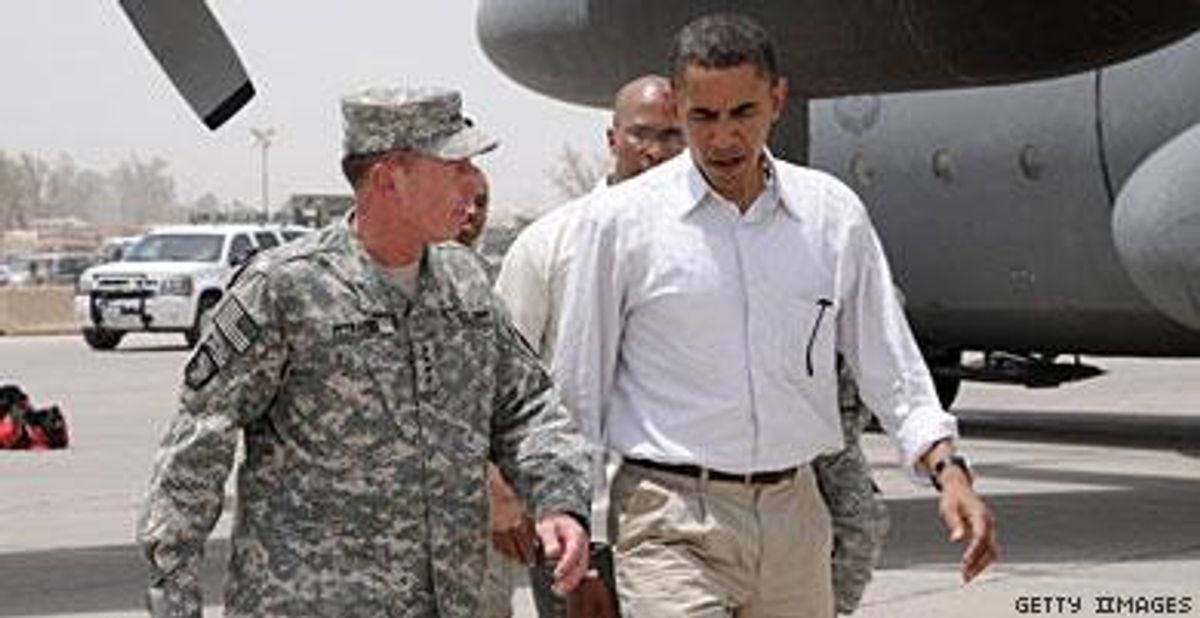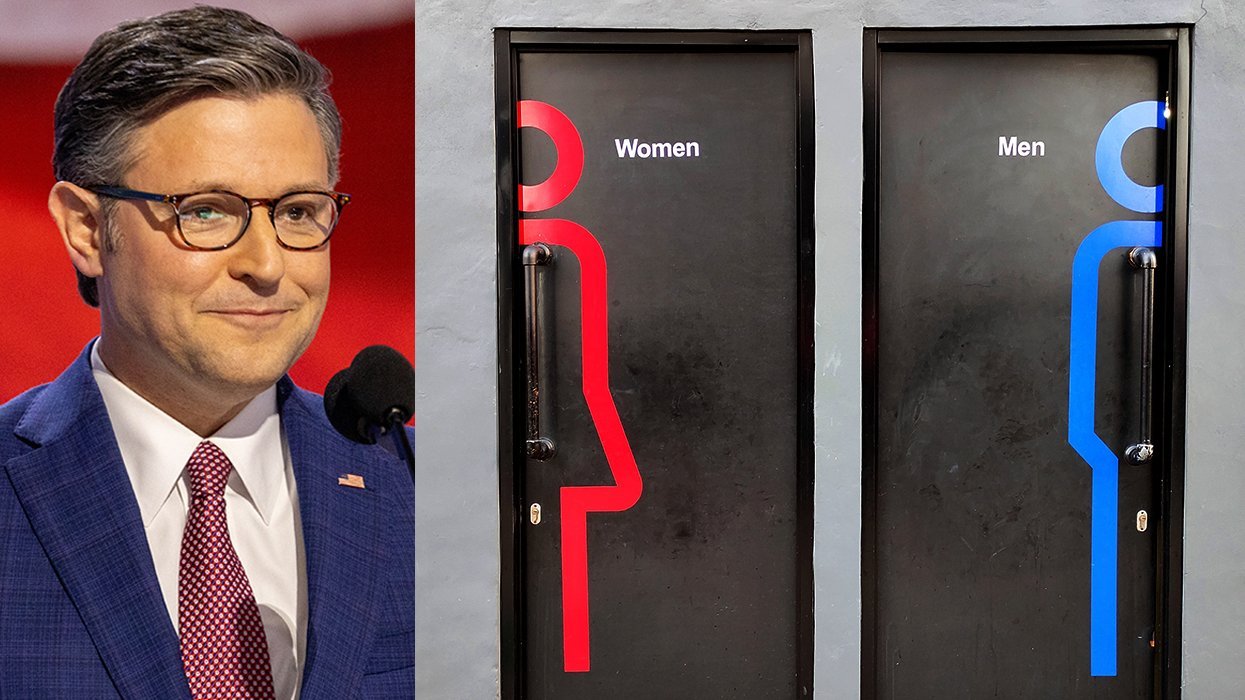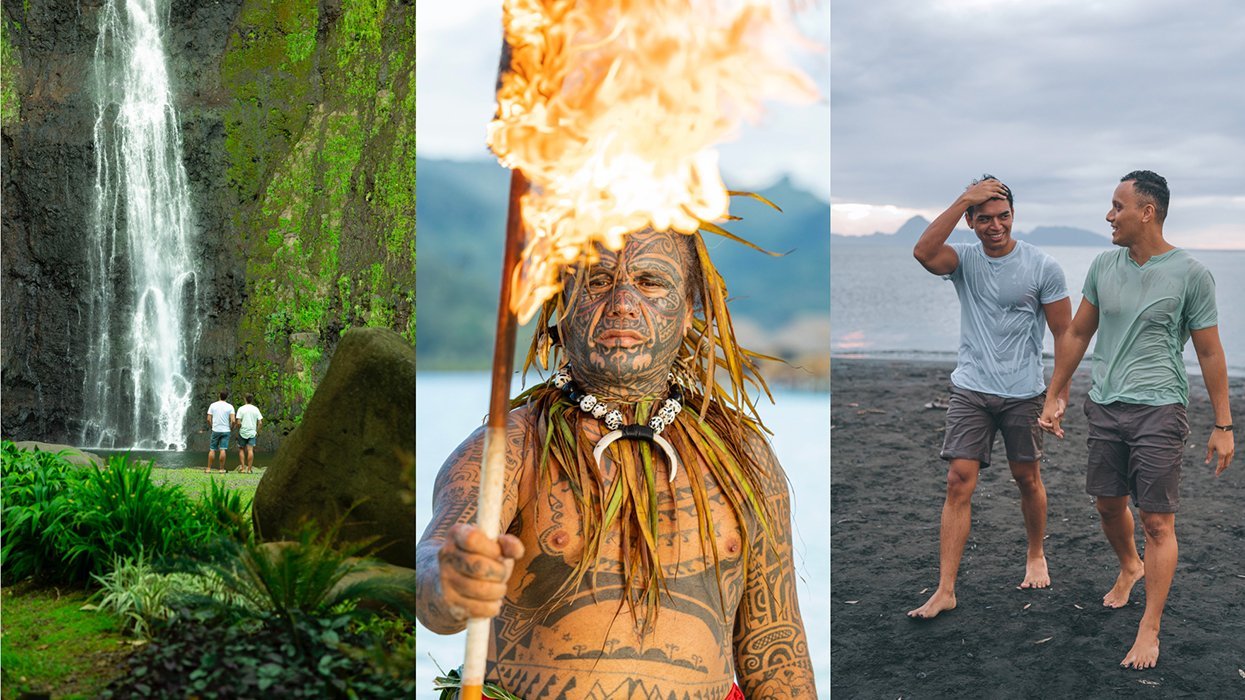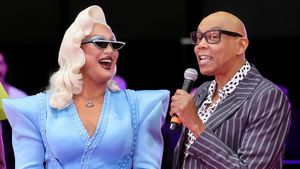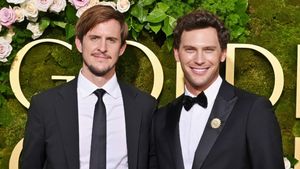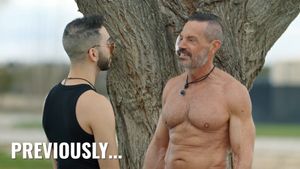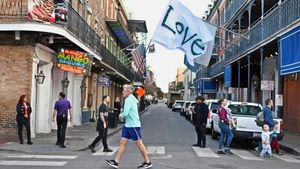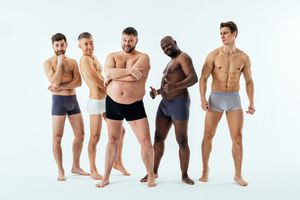The Barack Obama
campaign held a conference call Wednesday aimed at
contrasting the senator's support for repeal of the
military's "don't ask,
don't tell" policy with John McCain's
belief in maintaining the ban against gays and
lesbians serving openly in the Armed Forces.
"John
McCain does not believe that our military personnel are as
professional as the 23 other NATO countries that allow their
military members to serve openly," said Rep.
Patrick Murphy of Pennsylvania, who emerged as a
fervent straight ally for repealing the ban in July at the
first congressional hearings held on the policy since 1993.
"As many of you know, they did adopt a platform
-- John McCain and Sarah Palin -- that emphasized the
incompatibility of homosexuality within the military
service."
The GOP platform
asserts, "To protect our servicemen and women and
ensure that America's Armed Forces remain the
best in the world, we affirm the timelessness of those
values, the benefits of traditional military culture,
and the incompatibility of homosexuality with military
service."
The Democratic
platform, by contrast, calls for an end to the policy in
the name of military preparedness: "We support the
repeal of 'don't ask, don't
tell' and the implementation of policies to allow
qualified men and women to serve openly regardless of
sexual orientation."
Without calling
the 72-year-old McCain by name, retired Lt. General
Claudia Kennedy noted a generational difference in
perspective on being gay. "We're in the
generation of soldiers who don't think this is nearly
as important as some of the people who are from a much older
generation," the 60-year-old Kennedy said of
the group of Obama surrogates on the conference call.
Kennedy, the
first woman to reach the rank of a three-star general, added
that Sen. Joseph Lieberman -- a strong McCain supporter --
and the former Joint Chiefs of Staff chairman, retired
General John Shalikashvili, have both said the
"outmoded" policy should be changed.
"There's just no question in my mind that we
ought to look at the entire talent pool," she
said, in relation to recruitment. "We should not be
artificially limiting who we look at as a potential
soldier."
Some reporters
raised questions about whether Obama's support for
reinstating the Reserve Officers' Training Corps (ROTC)
programs on college campuses nationwide -- some
colleges expelled ROTC programs during the tumult of
the Vietnam War -- was in conflict with his commitment
to ending "don't ask, don't
tell." Many campuses continue to ban military
recruitment of any kind based on the military's
discriminatory policy against gays.
"I agree
with Senator Obama," responded Murphy, who joined a
ROTC program while attending Kings College at
Wilkes-Barre, Pa. "Senator Obama believes that
our military needs equal access to our best and brightest
graduates, which includes LGBT Americans."
Steve Boeckels, a
1997 West Point graduate and former Army lieutenant who
was discharged in 2000 under "don't ask,
don't tell," added that culling recruits
from a wider range of campuses would have a positive effect
on overturning the ban.
"When you
limit the people or limit the number of schools or put bans
on ROTC programs," Boeckels said, "you
make it more difficult for the leadership to really
have a broad-based background of people. And it's
going to be more difficult to integrate people and overturn
'don't ask, don't tell' if you have a
lot of people that maintain our [ROTC] programs come
from more conservative schools."
Since being
discharged, Boeckels said he had encountered a wide range of
people who don't understand the policy.
"No matter
who I talk to, whether they're Republican, Democrat,
liberal, or conservative, people who are in the
military, people not in the military -- people don't
understand what the law is," he said. "A lot
of people in the public have the misperception that
gays can serve openly and they have rights that are
afforded to them in the military."
When asked what
the biggest hurdle was to overturning the policy, Murphy
fingered the Bush Administration. "The fact is that
we are behind social change right now in our
military," he added. "We were ahead of social
change when we desegregated our Army in the 1950s via
executive order of President Truman. And in fact, half
our country was still segregated at the time and it
was in the middle of the Korean War."
